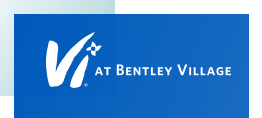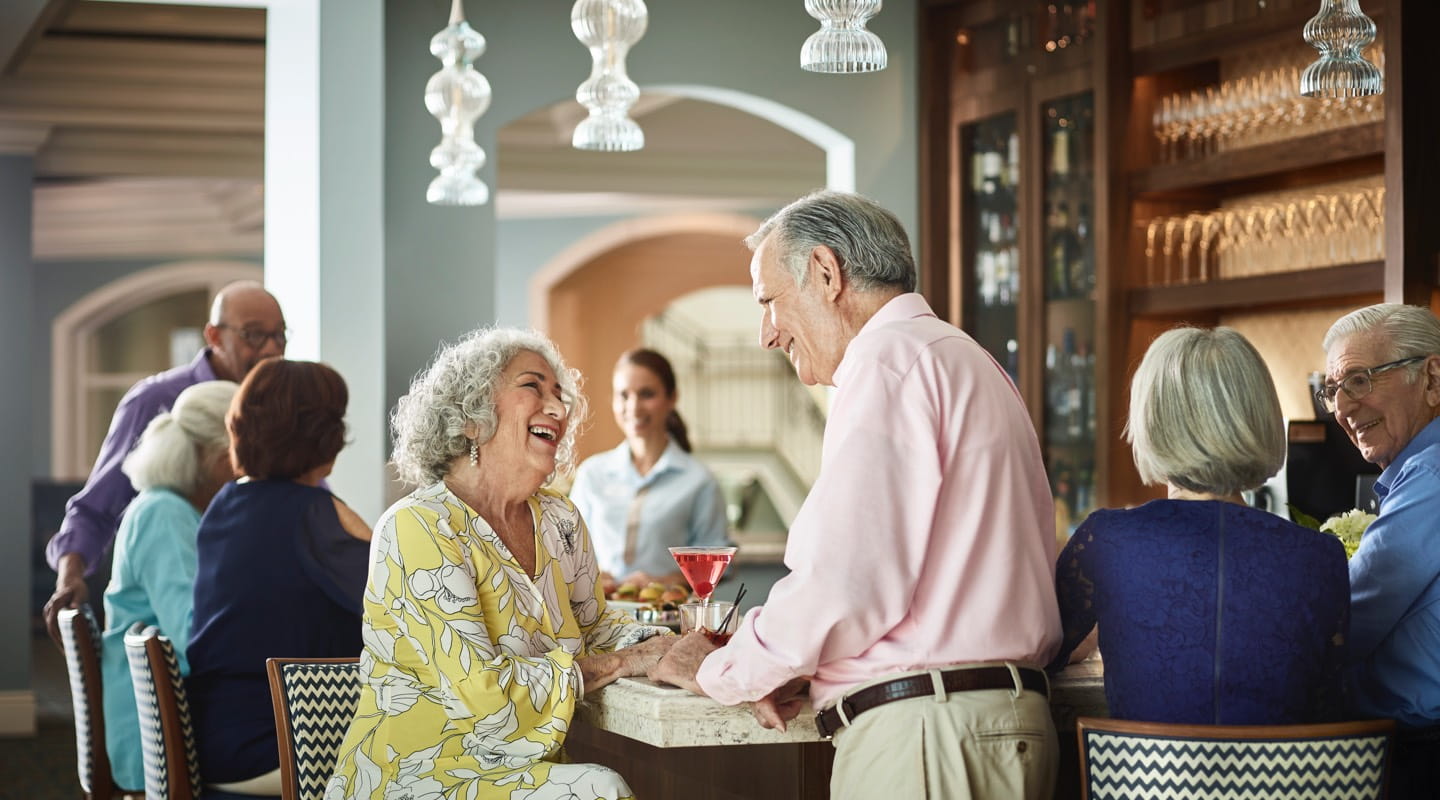Philosophy
Resident Care Policies are intended to describe the Company commitment to a customer-centered approach to care provided throughout the continuum of clinical services.
Purpose
This policy describes the practices associated with a resident’s personal communication, interactions and visitation in the care center venue, and establishes guidelines for visitors of Licensed Care Venue residents at the Company’s Florida-based communities.
Process
- Residents are permitted private and uncensored communication and interactions of their choice by mail, telephone, unrestricted in-person visitation, or other means and methods of alternative communication or interaction (for example, Facetime). Residents may designate and/or receive any visitor(s) of their choosing, refuse a visitor permission to enter their room and/or end a visit at any time. The Administrator of the Licensed Care Venue is responsible for ensuring that workers, employees and staff adhere to visitation policies and procedures to support each resident’s right to visitation at the Licensed Care Venue.
- Residents have the right to immediate access by family and reasonable access by others unless such visits are not medically advisable, as documented in the medical record by the healthcare provider with prescriptive authority. Licensed Care Venue management and/or staff reserves the right to change the location of the visits to protect privacy or assist the care giving of other residents, if needed.
- Residents have the right to designate particular visitors, and also, determine the number of visitors, during visitation periods. The primary purpose of in-person visitation is to support consensual physical contact and/or encounters between residents and family members, or visitors designated by the resident within the Licensed Care Venue.
- Residents may designate a visitor who may be a family member, friend, guardian, or other individual as an essential caregiver. The Licensed Care Venue specifically permits in-person visitation by the essential caregiver(s) designated by the resident; the Licensed Care Venue does not require an essential caregiver designated by the resident to provide “necessary care” as a condition or impediment to in-person visitation.
- In-person visitation at the Licensed Care Venue is allowed specifically in all the following circumstances, unless the resident specifically objects to in-person visitation:
- End-of-life situations;
- In cases where a resident, who was living with family before being admitted to the Licensed Care Venue, is struggling with the change in environment and lack of in-person family support;
- The resident is making one or more major medical decisions;
- A resident is experiencing emotional distress or grieving the loss of a friend or family member who recently died;
- A resident needs cueing or encouragement to eat or drink which was previously provided by a family member or a caregiver; and/or
- A resident who used to talk and interact with others is seldom speaking.
- Interaction and communication between the resident and visitor is private and confidential. Private space for visiting is available in the resident’s room. Accommodations are made to use other spaces for in-person visitation at the Licensed Care Venue, if needed or requested by the resident. Special or unique visitation accommodations are considered and coordinated through the Licensed Care Venue management team, if it will not disrupt the particular resident, affect the safety and well-being of other residents, or impede the administration of the Licensed Care Venue.
- Staff provides reasonable access to any resident by any entity or individual that provides health, social, legal or other services to the resident, subject to the resident’s right to deny or withdraw consent at any time. These may occur during visiting hours in the resident’s room or another private area.
- Individuals who may have immediate access to the resident include, but are not limited to:
- Representatives of the Department of Health,
- Long Term Care Ombudsman,
- Appropriate law enforcement agents,
- Adult protective services agency representatives; and the
- Resident’s healthcare provider with prescriptive authority.
- The resident may not refuse to be visited or seen by federal or state surveyors.
- All visitors of the Licensed Care Venue must sign-in and sign-out and wear a visitor badge.
- The Licensed Care Venue does not require visitors to provide proof of vaccination or immunization.
- The Licensed Care Venue encourages frequent hand-hygiene during visits. Sanitizer is available on premises.
- The Administrator of the Licensed Care Venue designates one or more care staff members to implement and oversee appropriate infection control and prevention practices incorporated into its established visitation policies and procedures. The Licensed Care Venue provides information on these policies to visitors upon request. In addition, each Licensed Care Venue makes its established visitation policies and procedures available on the Community’s website.
- If a particular visitor violates policy or procedure of the Licensed Care Venue, in-person visitation may be suspended by the facility’s Administrator or designee as to that particular visitor, but not to all designated visitors of the resident generally. Visitors who are disruptive or infringe upon the rights of other residents may be asked to leave the Licensed Care Venue without additional opportunity to cure their conduct.
- Resident’ mail is delivered to the concierge desk and distributed by a designated individual daily or placed directly into each resident’s mailbox by the postal service, as appropriate. Residents may request to have items mailed by the care center venue staff at any time. a. Postage is available but is charged to the resident. b. All outgoing and incoming mail is private and not examined by care center venue personnel.
- Residents may have access to telephones in their rooms. Long distance calls can be made with the resident’s credit card, calling card or cellular telephone.
- Except in an emergency situation, before entering any resident’s room, staff and visitors are expected to knock, identify themselves and receive permission to enter.
- A resident’s healthcare provider with prescriptive authority may reasonably restrict interaction/communication/visitation in order to protect him or her or others from harm, harassment or intimidation, and the reason is documented in the resident’s medical record.
Infection control and education policies for visitors
- Visitors with confirmed communicable disease or compatible symptoms should defer non-urgent in-person visitation until no longer contagious.
- Family and visitors should be aware of the care center resident’s susceptibility to infection and refrain from visiting if they have a communicable disease, or if an outbreak of a communicable disease is prevalent in the local geographic area.
- A notice will be posted at all entries to the community alerting visitors to the situation and requesting only essential visits are made.
- Visitors will observe the licensed care venues policies for isolation practices and barrier precautions based upon national (e.g., CDC), state, or local public health authority recommendations and guidelines.
- During a community disease outbreak, restricted visitation will be considered to protect residents and staff based upon national (e.g., CDC), state, or local public health authority recommendations and guidelines.
- Visitors are to follow guidelines for hand washing procedure to prevent the spread of infectious illness or disease.
- Infection Control Training for Visitors
- Director of Nursing, or designee, of the Community shall be responsible for infection prevention and control training.
- Visitors will observe the licensed care venues policies for isolation practices and barrier precautions based upon national (e.g., CDC), state, or local public health authority recommendations and guidelines.
- Visitor screening, personal protective equipment (PPE), and other infection control protocols for visitors
- Personnel will help screen visitors who are obviously ill at all entries to the community.
- The Community designee will ensure that the required training and policy acknowledgements are in place for visitors.
- The Community designee will ensure that the visitor has appropriate PPE, if applicable.
- The Community requires personal protective equipment per transmission-based precautions and standards based on community policies.
- Personal protective equipment use is not required if there are no residents in isolation, or when an outbreak is not evident.
- Visitation Policies and Restrictions
- Visitation to the community in both independent living and the care venues is discouraged, limited, restricted, or completely prohibited based upon national (e.g., CDC), state, or local public health authority recommendations and guidelines.
- Unrestricted private communication, including receiving and sending unopened correspondence, access to a telephone, and visiting with any number of person(s) of residents’ choice, at any time between the hours of 9am and 9pm for an unrestricted length of time. Upon request, the facility shall make provisions to extend visiting hours for caregivers and guests.
- When there are no known cases of communicable disease, visitation, or number of visitors will be generally unrestricted.
- In the event Residents currently residing in the Community are known to be infected with COVID, restrictions may be placed upon General Visitors to reduce the possible spread of COVID.
- The Executive Director, Director of Nursing, or designee may restrict the number of visitors to the facility, if necessary, to reduce the possible spread of communicable diseases.
- Visitation by Essential Caregivers will always be allowed to occur, and at least for 2 hours daily at a minimum, at the time selected by the resident.
- Efforts to continue General Visitation even when a resident positive for an infection disease is residing in the community shall be made, and protocols shall be implemented at the discretion of the Executive Director, or designee, for example (when practical):
- Identify locations for visitation/care to occur planning for residents in shared spaces and facilities with minimal common space to identify maximum time availability.
- Provide outdoor visitation spaces that are protected from weather elements, such as porches, courtyards, patios, or other covered areas that are protected from heat and sun, with cooling devices, if needed
- Create indoor visitation spaces for residents in a room that is not accessible by other residents or in a resident’s private room if the resident is bedbound and for health reasons cannot leave his or her room.
Report a complaint
To file a complaint about a health care facility that is regulated by the Agency for Health Care Administration, visit the AHCA website: https://apps.ahca.myflorida.com/hcfc/

